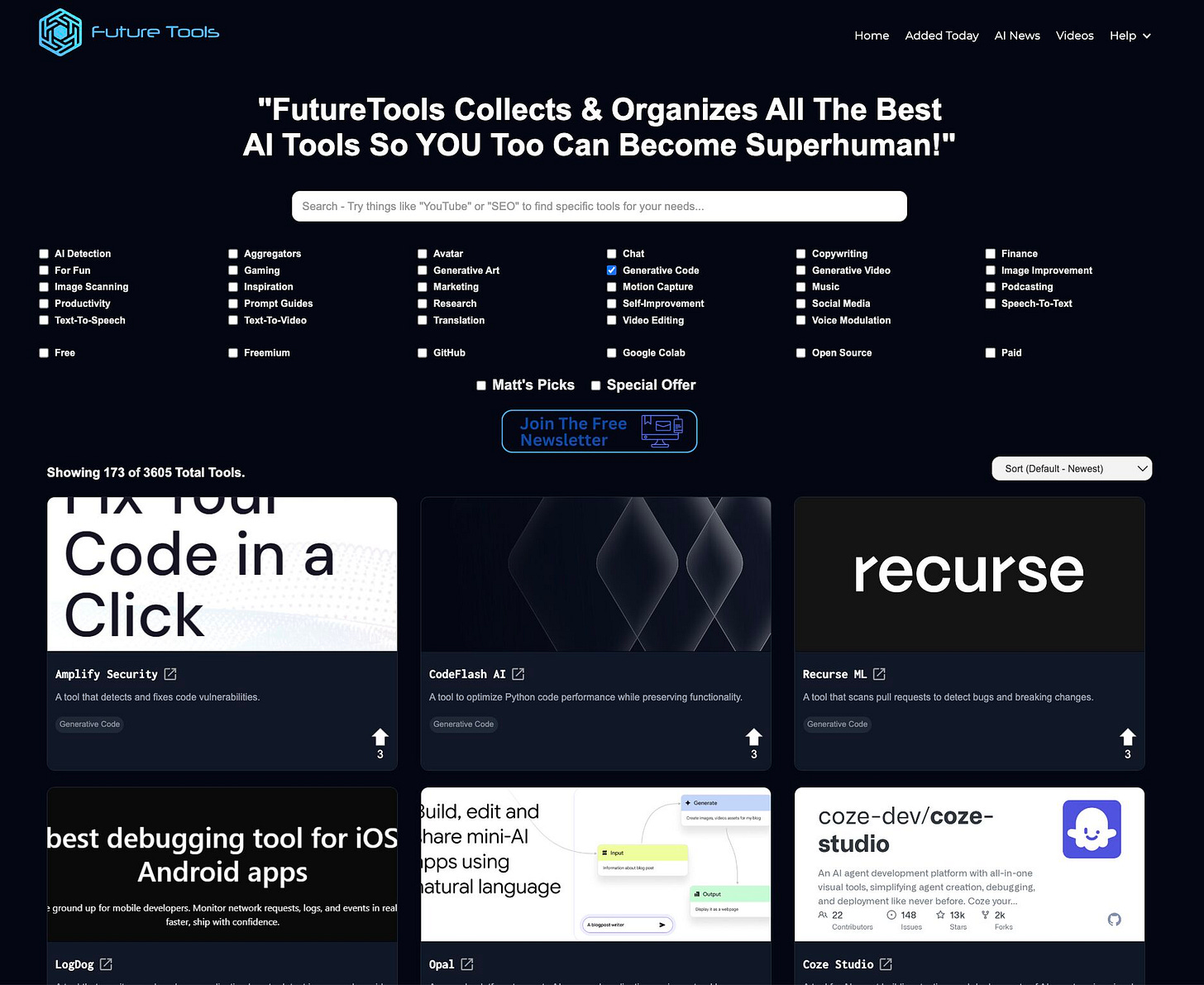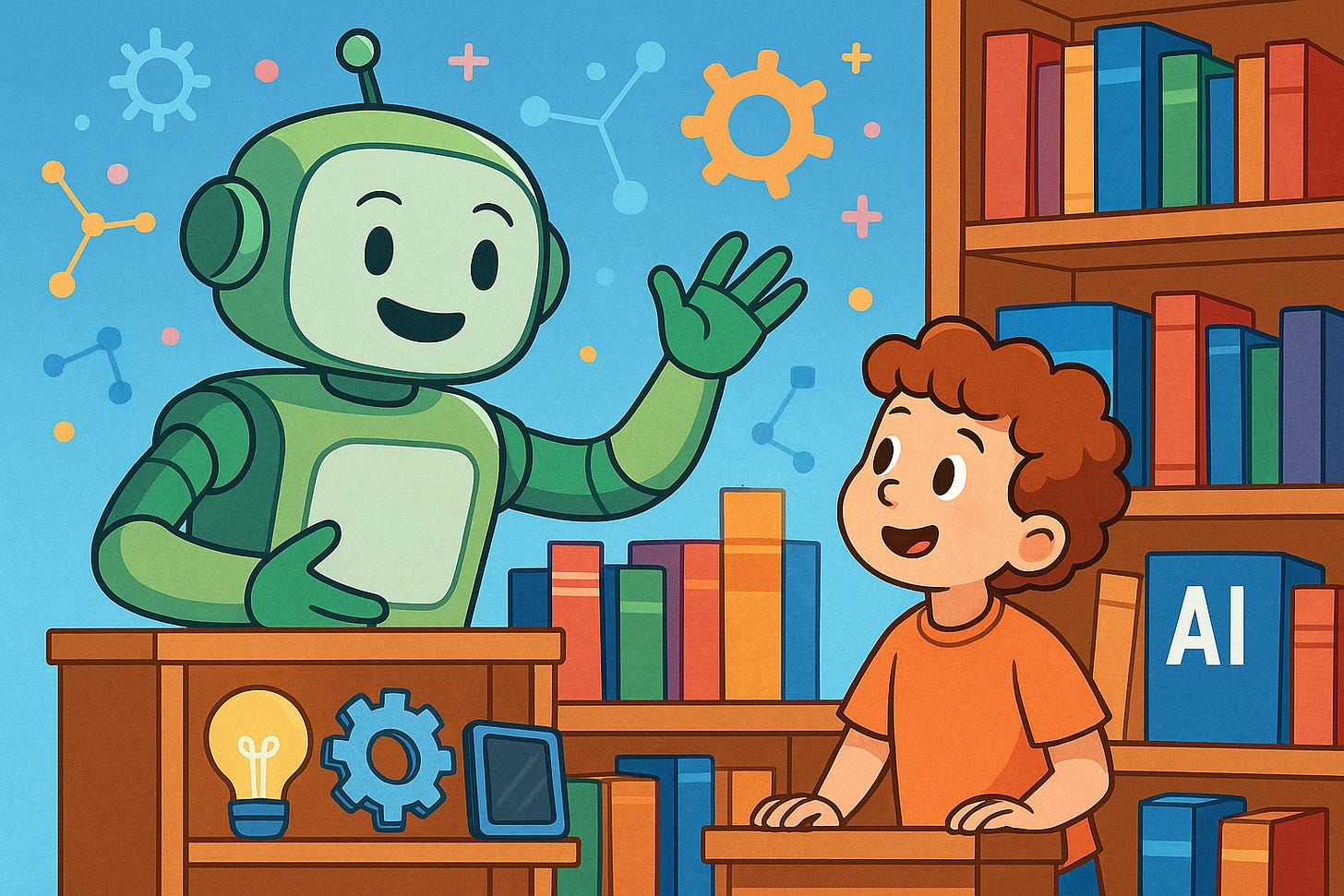My Simple Guide to Finding Cool AI Tools with FutureTools
How I stopped wasting time and found the right AI helpers for my coding projects
Lost in a Sea of Tools
Have you ever searched for a special computer helper and ended up feeling lost? When I wanted AI programs to check my code, I spent hours reading articles and videos. Workers in many jobs waste about 1.8 hours each day—over 9 hours every week—just looking for information. For programmers, thousands of new AI tools launch every year, and every blog claims to show “the best.” It’s exciting but confusing.
The Treasure Map: What Is FutureTools.io?
I found FutureTools.io, a website that collects AI tools so anyone can become “superhuman”futuretools.io. A Cosmico review says it lists over 3 000 tools. They’re sorted into categories like Chat, Generative Art, Code and Translationfuturetools.io and you can sign up for updates. Instead of endless blog posts, you click the category you need and see a few options.
Why Searching Eats Up Our Time
People don’t realize how much time they lose searching. McKinsey researchers found it’s as if one out of every five workers is missing because they’re still looking for information. Another survey said businesses waste 19.8 percent of their time—almost a day a week—because people can’t find what they need.
For developers, that means hours spent scrolling instead of coding. FutureTools fixes this by labeling each tool clearly. When I needed help checking my code, I clicked on “Generative Code” and saw helpers like GitHub Copilot, Cursor and Codeium. For reviews, the “Productivity” section showed CodeRabbit, Greptile and Devlo.ai. With everything in one place, I stopped jumping between websites.
Real Wins and Hidden Risks
Using the right helper made my work smoother. Automated reviews caught mistakes, pair‑programming assistants suggested code, and some tools turned my code into neat notes. Because they were grouped by task, I could compare two or three options, pick one, and get back to building.
But AI isn’t always a shortcut. A study by the Model Evaluation & Threat Research (METR) group found that experienced coders took 19 percent longer to finish real tasks when they used assistants like Cursor Pro and Claude. The developers thought they’d work faster, but they spent extra time checking and fixing the AI’s suggestions. Other research, done on small, simple tasks, showed that using GitHub Copilot let coders finish 26 percent more tasks and work 55.8 percent faster. The difference comes down to context: AI helps with basic jobs, but it can slow you down on big, messy projects.
The Sneaky Problem of “Tool Fatigue”
There is also such a thing as too many tools. HubSpot’s survey notes that companies spent 75.2 percent more on AI apps between 2024 and 2025. One expert says teams often try five to ten tools in a month but only keep one or two. People get tired because they chase flashy features instead of fit. I felt calmer and saved money when I limited myself to one or two helpers per task.
Finding Your AI Toolkit Compass
Here are a few tips that help me avoid getting lost:
Know what you need: Write down your problem, like “help me write code.”
Go to the right section: Use categories to find a few toolsfuturetools.io.
Pick a couple: Compare two or three tools and choose one to try.
Test and decide: If it saves time, keep it; if not, move on.
Share what works: Tell friends what you find so you all learn together.
Conclusion: Your Turn to Explore
Finding the right AI helper shouldn’t be harder than writing the code itself. FutureTools.io acts like a helpful librarian, pointing you to the right shelf. Remember that even the coolest tool can slow you down if it doesn’t fit, and trying too many can wear you out. Choose wisely and focus on what truly helps.
What’s your favorite way to discover new AI tools? Do you ask friends, read newsletters, or browse directories like FutureTools? Share your methods below so we can all build toolkits that make coding fun instead of exhausting!



